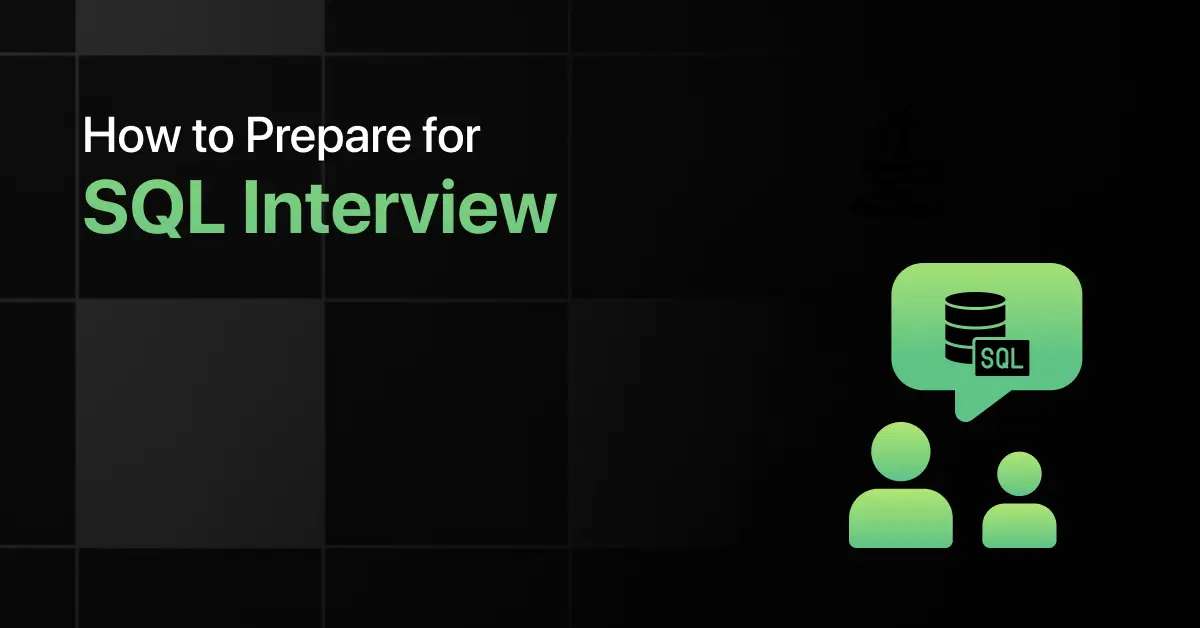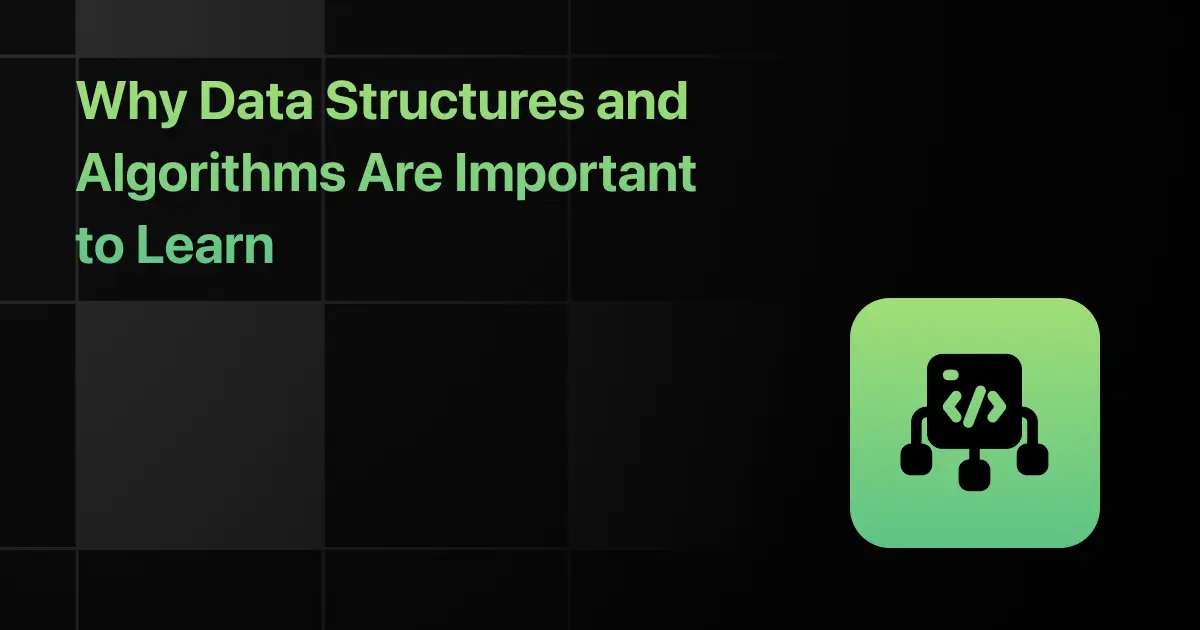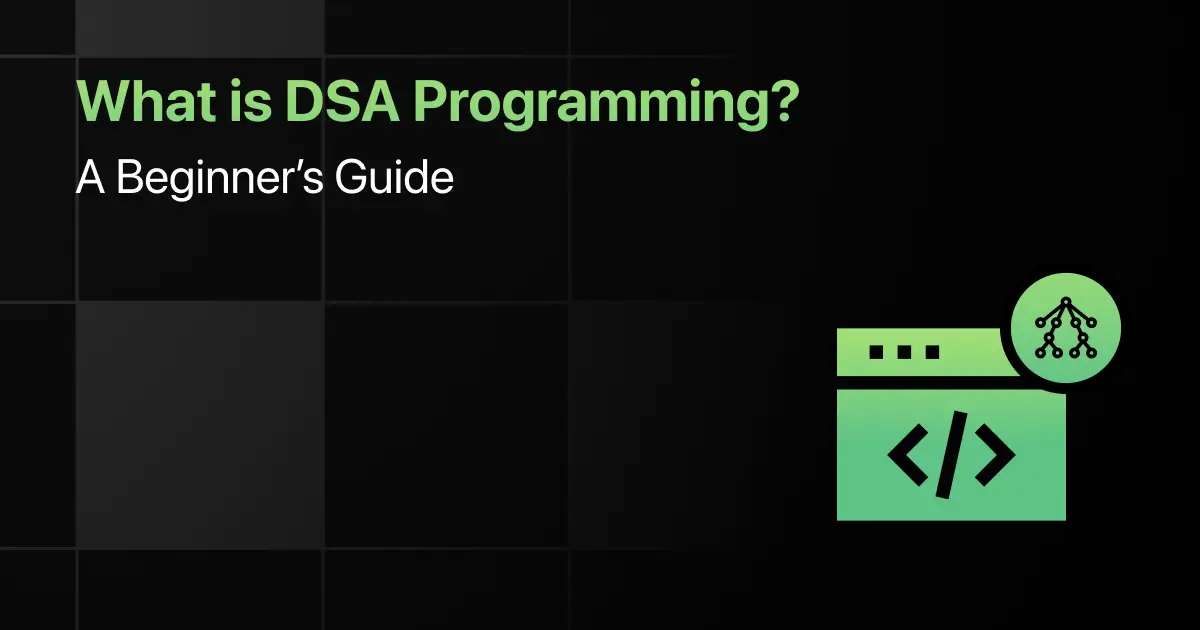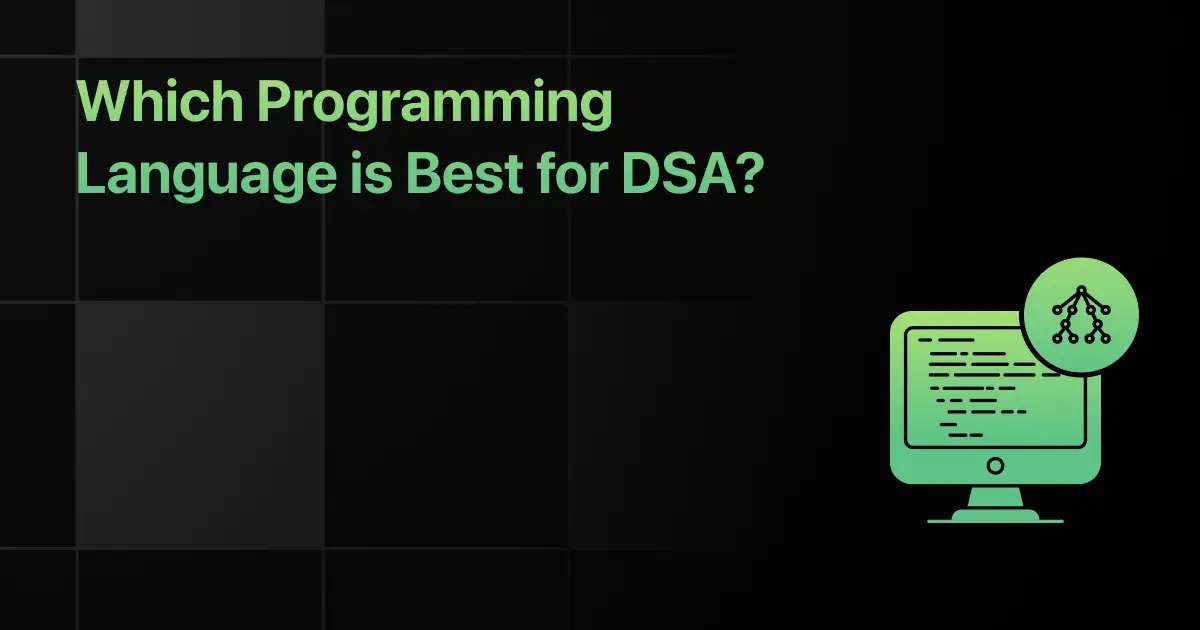How to Prepare for SQL Interview

Are you getting ready for an SQL interview but feeling unsure about what to study first?
Many candidates find it difficult to balance SQL theory with hands-on query practice, which often leads to mistakes in interviews.
This blog will give you a clear roadmap for SQL interview preparation, covering core concepts, commonly asked queries, and practical tips to improve your problem-solving skills.
SQL Interview Preparation Guide
Preparing for an SQL interview requires a strong understanding of database fundamentals such as queries, joins, indexing, and normalization. Interviewers often check not only your theoretical knowledge but also your ability to write efficient queries for real-world scenarios.
To strengthen your preparation, it’s useful to combine structured practice with insights from real interview experiences, where you can learn the type of SQL questions companies typically ask.
1. Master the Core Fundamentals
Before tackling complex queries, it is important to revise the fundamental concepts of SQL that are frequently asked in interviews. Key areas include:
- Basic SQL syntax and commands (SELECT, INSERT, UPDATE, DELETE)
- Data types and constraints
- Joins (INNER, LEFT, RIGHT, FULL)
- GROUP BY, HAVING, and aggregate functions
- Subqueries and nested queries
- Normalization and denormalization
- Indexing and performance tuning basics
- Primary keys, foreign keys, and relationships
- Views, stored procedures, and triggers
- Transactions and ACID properties
- A solid grasp of these fundamentals ensures that you can answer both conceptual and practical SQL questions confidently.
2. Practice Coding Problems Consistently
SQL interviews often involve solving query-based problems, so consistent practice is essential. Focus on writing queries that involve joins, filtering, grouping, and aggregations, as these are commonly tested.
Work on problems related to retrieving top-N results, finding duplicates, calculating running totals, and optimizing queries for performance.
Regular practice not only improves accuracy but also helps you write efficient queries under time constraints. Using interactive platforms for SQL exercises can make your preparation more effective.
3. Prepare for Commonly Asked Interview Questions
Most SQL interviews include a mix of conceptual and query-based questions. Reviewing frequently asked questions helps you understand the expected depth of knowledge. Some commonly asked SQL interview questions are:
- What is the difference between SQL and NoSQL databases?
- Explain the different types of joins in SQL with examples.
- What is the difference between WHERE and HAVING clauses?
- How does GROUP BY work and when should it be used?
- What are indexes in SQL and how do they improve performance?
- What are the differences between clustered and non-clustered indexes?
- Explain normalization and its different forms.
- What are transactions and ACID properties in SQL?
- How do you find duplicate rows in a table?
- What is the difference between UNION and UNION ALL?
- How can you retrieve the second-highest salary from an employee table?
- What are stored procedures and triggers, and when should they be used?
- How do you handle NULL values in SQL queries?
- What is the difference between DELETE, TRUNCATE, and DROP commands?
- Explain the difference between primary key and unique key constraints.
Preparing answers to these questions gives you an edge in both written tests and technical interviews.
4. Preparation Tips
A structured preparation plan can help you cover SQL effectively before the interview. Start by revising fundamentals, then dedicate time each day to writing and testing queries.
Take at least one or two mock interviews to practice explaining your solutions and reasoning under time limits. Work on small SQL projects, such as designing a database schema or analyzing sample datasets, to showcase your applied skills.
Finally, ensure you revise commonly asked queries and concepts a day before the interview instead of learning something entirely new, which will help you remain confident and clear during the process.
Final Words
Preparing for an SQL interview requires a balance of strong theoretical knowledge and consistent query practice. By focusing on core concepts, solving practical problems, and revising common interview questions, you can approach the interview with confidence and clarity.
Explore More Interview Preparation for
- Python
- Software Developer
- C++
- Machine Learning
- Full Stack Developer
- Front End Developer
- .NET
- C#
- PHP
- Angular
- Node JS
- C Programming
- JavaScript
- Java
- DBMS
- React
FAQs
To prepare for an SQL interview as a fresher, focus on learning query writing, understanding database concepts, and practicing real-world problems regularly.
The most important SQL topics for interviews include joins, subqueries, indexing, normalization, and transactions with ACID properties.
You should practice SQL queries daily on joins, aggregations, filtering, and optimization until you can solve them confidently under time limits.
The best platforms to practice SQL coding questions are PlacementPreparation.io, LeetCode, HackerRank, and Mode Analytics.
To revise SQL concepts one day before the interview, quickly review joins, indexing, normalization, and commonly asked queries.
PlacementPreparation.io is useful for SQL interview preparation because it provides structured exercises, MCQs, and real interview questions tailored for students.
Related Posts


Importance of Data Structures and Algorithms (DSA)
Why is everyone constantly talking about DSA, and why is it considered so important for programming? Many beginners focus only on …
Warning: Undefined variable $post_id in /var/www/wordpress/wp-content/themes/placementpreparation/template-parts/popup-zenlite.php on line 1050








